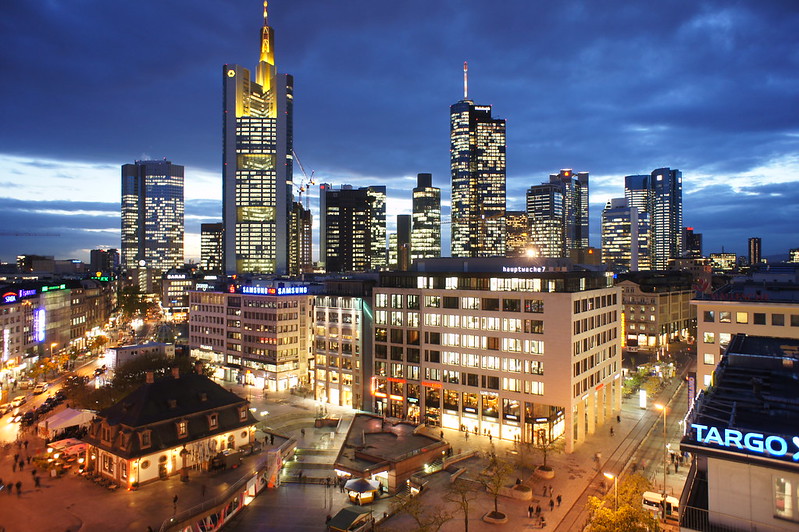Frankfurt – ESI on how to manage migration to Europe humanely

Gerald Knaus delivered a keynote address titled “Demystifying Migration” at the Villa Bonn of the Frankfurter Gesellschaft für Handel Industrie und Wissenschaft. In his address, Gerald discussed with prominent members of Frankfurt’s business community on migration, asylum, and the future of Europe’s borders.
Gerald began his presentation by discussing his experience with migration across Europe, from the Balkans to Berlin. He noted how in so many of the places in Europe where he has lived – Bosnia or Ukraine, for example – conflict has forced mass-exodus. Indeed, Gerald noted, conflict in Europe itself has led to the highest level of migration in Europe since the Second World War – specifically pointing to conflicts in the Balkans, the Caucasus, and most recently Ukraine. This has been the predictable result in the breakdown of the rules-based order, where dictators have sought to impose their will through the use of force.
Yet, even inside Europe, the rules-based order has increasingly come under attack. Indeed, the same dictators who have started wars to impose their political vision are now organising irregular migration to Europe – such as on the Polish border – in their campaign to destabilise liberal democracies. Gerald noted that this is only possible due to the failure of current migration control policies in Europe. He asserted that the status quo is an ethical and functional failure, drawing upon statistics on deaths in the Mediterranean and the far right’s continued success pushing the migration topic. Gerald argued that what Europe now needs is a humane approach to migration control that balances rigorous management with respect for human rights and offers legal migration pathways akin to those in Canada.
Such a solution could also have benefits for the business community, addressing Germany’s labour shortage and strengthening the rule of law, which itself has been critical to Europe’s economic success since the Second World War.
- ESI proposal: Safe Third Country Agreements
- ESI proposal: Humane Borders
- Deutschlandfunk Kultur, Auslagerung von Asylverfahren ins Ausland – Warum das sinnvoll sein könnte, ("Outsourcing asylum procedures abroad - why this could make sense"), 18 June 2024
